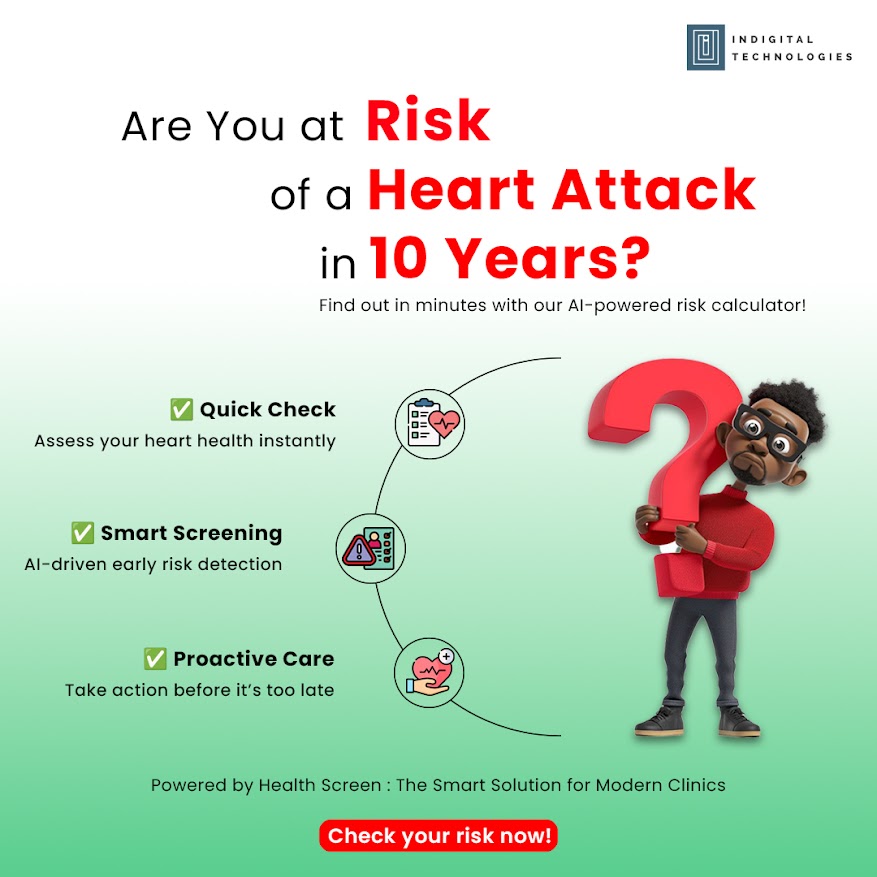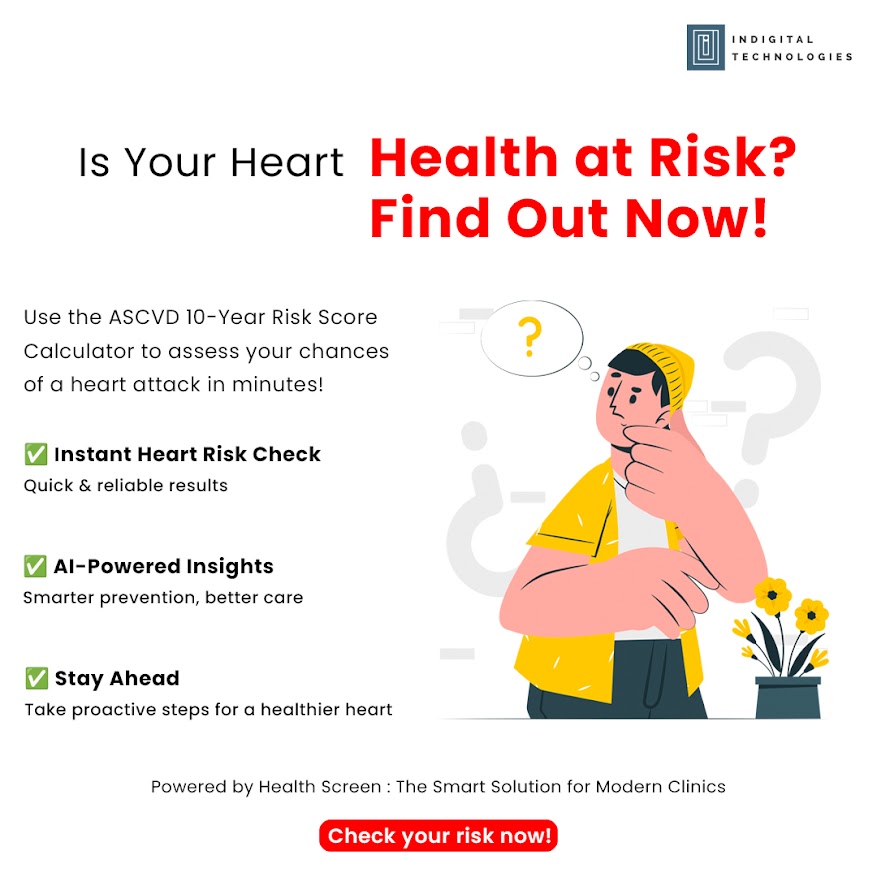Cardiovascular disease (CVD) remains one of the leading causes of death worldwide. Preventing heart disease before it occurs is crucial, and one of the most effective tools in risk assessment is the 10-Year Cardiac Risk Factor Calculator. This tool helps estimate an individual’s likelihood of experiencing a heart attack, stroke, or other major cardiovascular events within the next ten years.
By understanding key risk factors and using this calculator, healthcare professionals can take a proactive approach to heart health, helping patients adopt preventive measures to reduce their risk.
What Is the 10-Year Cardiac Risk Factor Calculator?
The 10-Year Cardiac Risk Calculator is a mathematical model that assesses an individual’s risk of developing heart disease based on clinical and lifestyle factors. It is widely used by doctors to guide preventive strategies and lifestyle modifications.
The most commonly used risk calculators include:
Framingham Risk Score (FRS)
ASCVD (Atherosclerotic Cardiovascular Disease) Risk Calculator
Reynolds Risk Score (for women and individuals with high C-reactive protein levels)
These models are based on large-scale epidemiological studies and provide an estimated percentage risk of developing heart disease within a decade.
How Does the 10-Year Cardiac Risk Calculator Work?
The calculator requires several key health parameters to determine the risk score. The most commonly used inputs include:
- Age – Age is a significant factor in cardiovascular risk, as older individuals have a higher likelihood of developing heart disease.
- Gender – Men generally have a higher risk of cardiovascular events than premenopausal women. However, postmenopausal women’s risk increases significantly.
- Blood Pressure (Systolic & Diastolic) – High blood pressure (hypertension) increases stress on the arteries and the heart, contributing to a greater risk of cardiovascular events.
A systolic blood pressure reading of 140 mmHg or higher significantly elevates risk. - Cholesterol Levels – Total cholesterol
LDL (Low-Density Lipoprotein) – “Bad” cholesterol
HDL (High-Density Lipoprotein) – “Good” cholesterol
High LDL cholesterol leads to plaque buildup in the arteries, increasing the risk of atherosclerosis and heart attacks. In contrast, higher HDL levels are protective. - Smoking Status – Smoking is a major risk factor for cardiovascular disease as it damages blood vessels, reduces oxygen levels, and increases blood clotting.
- Diabetes Status – People with diabetes have a significantly higher risk of heart disease due to higher blood sugar levels, which can damage blood vessels over time.
- Family History of Heart Disease – A history of early heart disease in first-degree relatives (parents or siblings) can increase an individual’s genetic risk.
Interpreting the Results
Once all the necessary data is input, the 10-Year Cardiac Risk Calculator provides an estimated percentage risk. The general interpretation is:
Low Risk: Less than 5% chance of a major cardiovascular event in 10 years
Moderate Risk: 5-10% risk
High Risk: Greater than 10% risk
Doctors use this information to develop personalized prevention strategies, which may include lifestyle changes, medication, and monitoring.
How to Reduce Your 10-Year Cardiac Risk?
If the calculator shows an elevated risk, proactive steps can help lower it:
- Maintain Healthy Blood Pressure
Regularly check your blood pressure and keep it under 120/80 mmHg.
Reduce sodium intake, exercise regularly, and manage stress. - Improve Cholesterol Levels
Eat heart-healthy foods (high in fiber, low in saturated fats).
Consider statins or other cholesterol-lowering medications if necessary. - Quit Smoking
Smoking cessation programs, nicotine patches, and behavioral therapy can help. - Control Blood Sugar Levels
If you have diabetes, aim for HbA1c levels below 7% with proper diet, exercise, and medication. - Exercise Regularly
150 minutes of moderate-intensity exercise per week (such as brisk walking or cycling). - Maintain a Healthy Diet
Focus on a Mediterranean-style diet rich in fruits, vegetables, lean proteins, and healthy fats. - Manage Stress and Sleep
Chronic stress and poor sleep increase cardiovascular risk. Practice meditation, yoga, and ensure 7-8 hours of sleep per night.
Who Should Use the 10-Year Cardiac Risk Calculator?
The calculator is ideal for:
✔ Adults aged 40-79 years without pre-existing cardiovascular disease.
✔ Individuals with risk factors like hypertension, high cholesterol, diabetes, or smoking.
✔ Patients considering cholesterol-lowering or blood pressure medication.
✔ Anyone looking to understand and proactively manage their heart health.
Doctors can use this tool during routine check-ups to guide discussions about preventive measures and medication options.
The 10-Year Cardiac Risk Factor Calculator is a powerful tool in cardiovascular prevention. By assessing an individual’s age, cholesterol, blood pressure, smoking status, diabetes, and family history, it helps doctors identify high-risk patients early and implement targeted prevention strategies.
Taking control of heart health today can prevent major cardiovascular events tomorrow!
Have you checked your 10-year cardiac risk? Talk to your doctor about preventive steps today!



